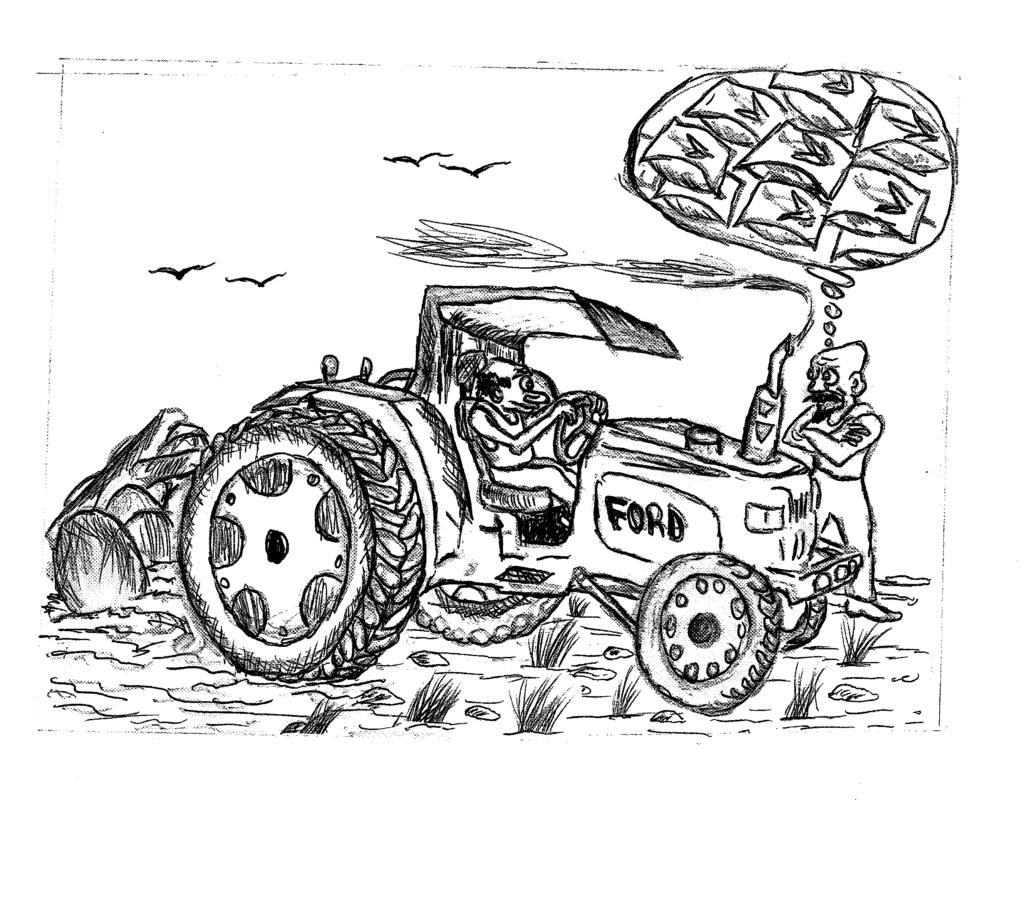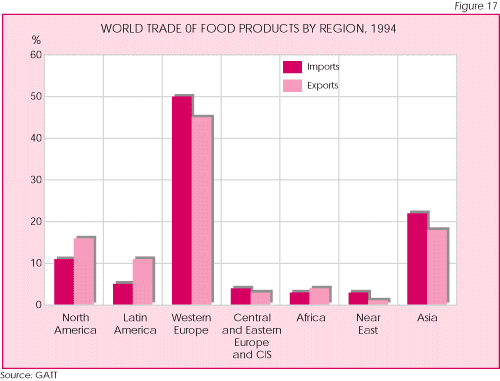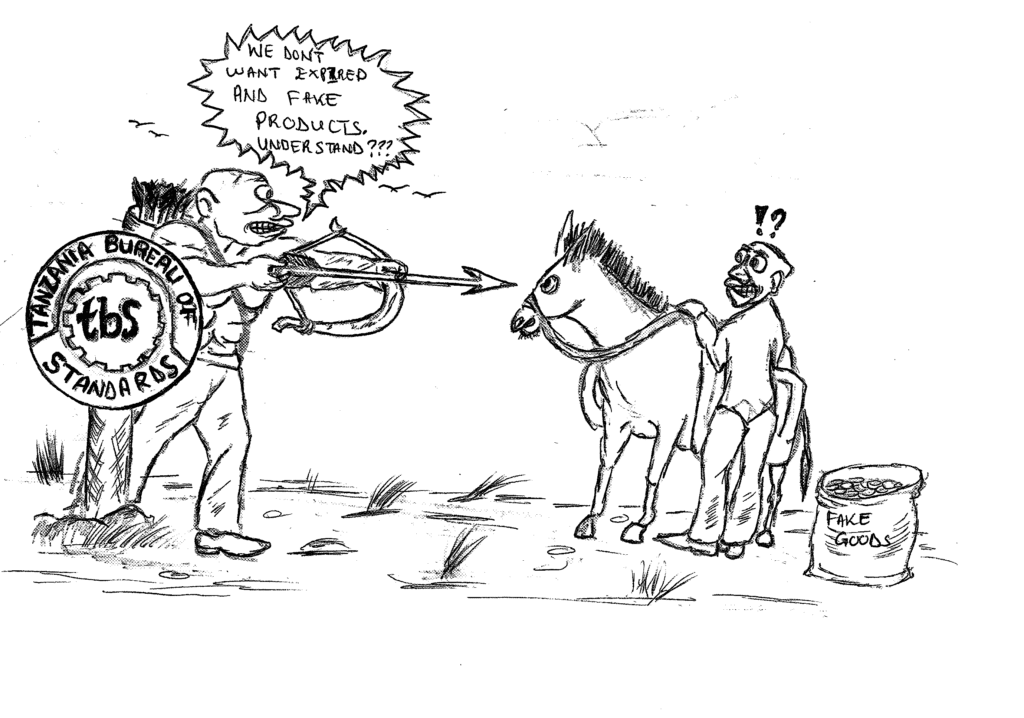We are extremely proud of three secondary students who have achieved exceptional results in a national essay competition. Form 4 students Julieth, Pius and Ebenezer wrote wonderful and insightful essays on ‘The Role of Standards in Promoting Sustainable Agriculture, Food Security and Trade in Africa.’ All three were in the top 10 national winners with Ebenezer coming in first. Here is his winning essay:
Ebeneza's essay: 'Roles of standards in promoting sustainable agriculture, food security and trade in Africa'

Not long ago a logo with an image of the globe caught my eyes as I browsed through the internet, it read thus; “Standards level the playing field”. A few days later, I crossed path with the same logo on the other website. However, this time this logo stuck me not on my “humor” nerve but the meditative one. If indeed, standards level were the playing field, then maybe life on earth would have been impossible without it.
Standards are documented agreements containing specifications or other precise criteria to be used consistently as rules, guidelines or definitions of characteristics to ensure that material, products, processes and services are fit for their purpose. For example, the format of credit cards and smart cards that have become commonplace is derived from an ISO international standard. Adhering to the standards, which defines such features as an optimum thickness (0.76mm), means that the card can be used worldwide.
Standards can be traced back around five to six thousand years ago when the Mohenjo-Daro or Harappa civilizations of Indus valley used standardization for town planning, water supply, drainage, house building and even weights and measures. Eli Whitney, who in 1793 invented the cotton gin, a machine for cleaning cotton fiber, pioneered the development of standardization as an engineering activity. In 1947, the International Standard Organization (ISO) was established to ensure the implementation of standards in the world.
In Africa, standardization is proved to have existed even before the colonial era. In 1970s and 1980s many standards organizations were established in Africa to ensure and implement standardization across the continent, these includes, Tanzania Bureau of Standard (TBS) in 1976 to ensure standardization in Tanzania, Uganda Bureau of Standards (UBS) in 1989 and Kenya Bureau of Standards (KEBS) in 1974 with the same tasks.
Standards have played a big role in promoting sustainable agriculture, trade and food security in Africa. As part of the intellectuals’ society we argue that Africa would have been facing great hunger, economic crisis and insecurity in food supply if it were not for standards .To prove our intellectualism I have confidently jotted these points to show how standards promoted sustainable agriculture, food security and trade in this continent.
Firstly, standards have enhanced the production of quality farm inputs such as seeds and fertilizers which have managed to curb agricultural problems. Food production has been maximized and the continent no longer suffers from hunger. As part of what is done by standard organization in Africa seeds and fertilizers are certified before they are allowed to be sold to farmers. For example, Tanzania-Seed Co Limited has been certified and given permission to supply various seeds within the country and various parts of the world. This is because the company managed to reach the required standards.
On the other hand, standards have facilitated the transfer of technology from different parts of the world to Africa and vice versa. This has encouraged modern agriculture techniques hence boosting up food production in the continent. It was not long when African farmers depended much on hand hoes for farming, hand pipes for irrigation and ashes as pesticides. Due to development and existence of standards in this continent, modern and advanced agricultural system has been adopted. This includes the use of modern tools such as tractors and harvesting machines together with the use of quality pesticides and modern irrigation system. For example, Gezira irrigation scheme enabled Sudan and Egypt to be recognized as the world cotton producers while South Africa became a significant figure in horticulture and dairy production.

Moreover, environmental protection is among the fruits of standardization in Africa. This has not only created a favorable climatic condition but also fertile soil for agriculture. Machines, which emit much waste such as harmful gases to the atmosphere, are banned to be used. For example, almost all African countries banned the use of two stroke engine Motorcycles and insisted on the use of four stroke engine in order to conserve the environment. To avoid soil being destroyed with waste chemicals from industries standards have provide the criteria on how to dispose wastes.
In addition, standards accelerated the removal of trade barriers in Africa. Restrictions on the export of processes, products and services by the introduction of some technical barriers to trade, such as arbitrary products requirements, are being viewed with great concern. Standards prevent such non-tariff barriers to trade by harmonizing requirements in a manner that promotes fair competition. Purchasers can be convinced about a quality level of a product that has been manufactured according to a recognized standard. Example in East Africa free market economy became possible. Due to this customers are no longer after brand names of products neither their country of origin but their qualities. This is why you should not wonder seeing Kenya being the main steel supplier in Tanzania while Tanzania cement is highly demanded in Kenya.

Likewise, interchangeability, and interdependence of products, processes and service became possible because of standards existence. For example Africa have been depending much on America and Europe for electronic equipments while these continents depend much on Africa for raw materials such as minerals and crude oil. This is possible due to products, processes and services being quality as approved by standard bodies. Libya for instance depends much on east Africa and West Africa for food while these countries in return depend on Libya for crude oil.
However, standards led to development of infrastructures. This has made trade to be conducted smoothly with less cost and maximum profit. For example air, marine and surface transports widen import trade and shortened the time goods and services could reach customer.
Furthermore, standards have been responsible for ensuring hygienic and safety conditions in food production. For example, the standards for sausage manufacture requires meet to be boiled at 100 degrees of centigrade in order to kill the microorganism, which causes diseases to human being. Officials from standard bodies to ensure that they meet the requirements have inspected all industries and factories. Those that do not meet the requirement are closed and fined. This has become a lesson to other industries and factories to always ensure that it meet the required standards.

Not only has standards developed and promoted better methods of preserving and storing food products but also, ensured constant supply of food in Africa. Standards for packaging and preservation have been introduced to make sure that people’s health is protected. This includes determining the expired date for these products to avoid expired goods being sold to people. To avoid being toothless barking dog standards organizations managed to put strict rules governing all products, processes and services production activities. This has maintained discipline in maintaining and implementing standardization.

Finally I would love to explicate per-se that standardization is part of our life. There is no way we can survive without it. Just as we need, food every day it would have been much better if we treat standards in the same way to ensure efficiency in processes, products and services.